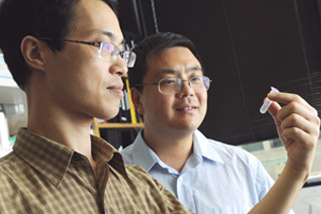
This analysis shows that adult blood cells can be controlled to forgo an immune response that causes transplant rejection. The research involved a culture ‘cocktail’ that was compatible with human and mice adult blood stem cells. They were also found to express immune inhibitors at surface level to shield from immune threat. The scientists made use of large numbers of programmed blood stem cells to combat protein blockage.
“It also opens up further studies in stem cell immunology. We speculate that a common mechanism exists to regulate immune inhibitors in different types of stem cells,†commented Dr. Chengcheng “Alec†Zhang, assistant professor of physiology and developmental biology at UT Southwestern and senior author of the research.
The latter apparently signals the immune system about foreign substances. They also refilled healthy cells in mice that were to receive transplants. According to Dr. Zhang, this can only be possible by culturing expansive adult blood cells and increasing cell surface expression of an immune molecule.
Approximately, 1 million people in the U.S. are suffering from blood cancer with growing numbers of people facing remission. Around 135,000 cases are expected to surface this year.
The findings are published in Cell Stem Cell.
